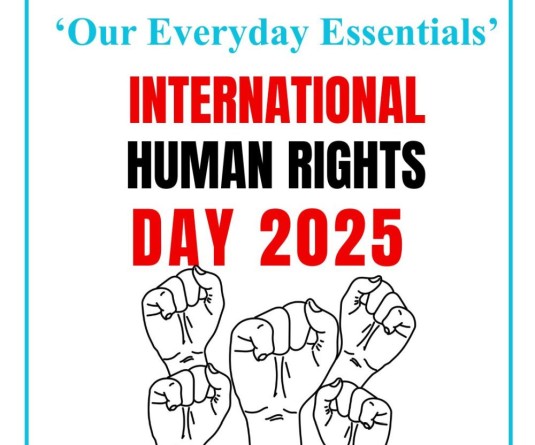
Dimapur, June 28 (MExN): The Forum for Naga Reconciliation (FNR) has acknowledged that in the struggle of safeguarding the political and historical rights of the Naga people, “hatred” and “revenge,” and “division” and “exclusion” have been weaved into the very existence of the Nagas’ lives and nation. However on the road to reconciliation, it had come to realization that any “epitaph of hatred and revenge must be honestly admitted and intentionally removed and the threats of violence humanely and willfully abolished”. This was stated in a press note issued by the FNR under the theme “On The Road to Reconciliation: Repentance and Forgiveness”.
Explaining its understanding of repentance, the FNR stated that contrary to the “false prophets’ message of repentance to strengthen the order of domination and subjugation, we acknowledge and confess that all forms of self-righteous declaration on repentance will judge and bind us”. “We affirm that to repent means to refuse to let the ‘seductiveness’ of hatred and revenge guide our thoughts and actions and instead be a new humanity under God’s kingdom established in our hearts. Therefore, we admit that we have been the perpetrators of hatred and revenge in the name of political rightness divorcing belief from political means”, stated the FNR.
So also, as victims, they have been humiliated, hurt and suffered the FNR admitted. “But we also realize and confess that often times we have echoed the behavior of the perpetrators, letting us be structured in the “mirror image of enemy.” As perpetrators and victims, we repent of our reactive behavior either by claiming that we are not responsible for our actions or that such reactive response is necessary for our freedom”.
The FNR also fully admitted that if we do not repent today, “we will continue to perpetuate the vicious cycle of perpetrators and victims typology”. “We also abhor any form of self-defense, and a thirst for revenge while we repent. Our genuine repentance, as the gift of God, calls us to transcend rationalization of our behavior and accuse others, and candidly and authentically take our wrongdoing upon ourselves”, it stated while reminding that “All have sinned and have come short of God’s glory.”
On forgiveness, the FNR pointed out that just as repentance, forgiveness is a constituent part of reconciliation. “Is it possible to forgive, after all that one has suffered? How is this possible?” the FNR questioned and adding that “forgiveness is a difficult process”. “Nevertheless, forgiveness does not mean that we accept the actions of the perpetrators. An atrocity is an atrocity committed to the other, and an inhuman action is an inhuman act committed to the victim. As victim we do not forget nor brush aside the atrocity and the inhuman act committed against us. But, we forgive our perpetrators, even if they are unaware, to free us from the haunting psychological torture within us”, the FNR stated.
“Clinging to revenge will only eternalize the power of the perpetrators by haunting us daily”, the FNR stated. “Therefore, as victims, we forgive in order to liberate us from haunting—anger, shame and revenge. For our own sakes we understand that we need to forgive, so that our lives can be free from the tormenting power of the past”.
Above all, in the cross of Jesus Christ, the guilty ones are not called to account and penalized, the FNR stated. “We are drawn to His matchless love and set free to be. We are enabled to forgive others because we ourselves have been forgiven”, it went on to state while quoting “Love your enemies and pray for those who persecute you.” (Matt. 5: 44).



.jpg)


